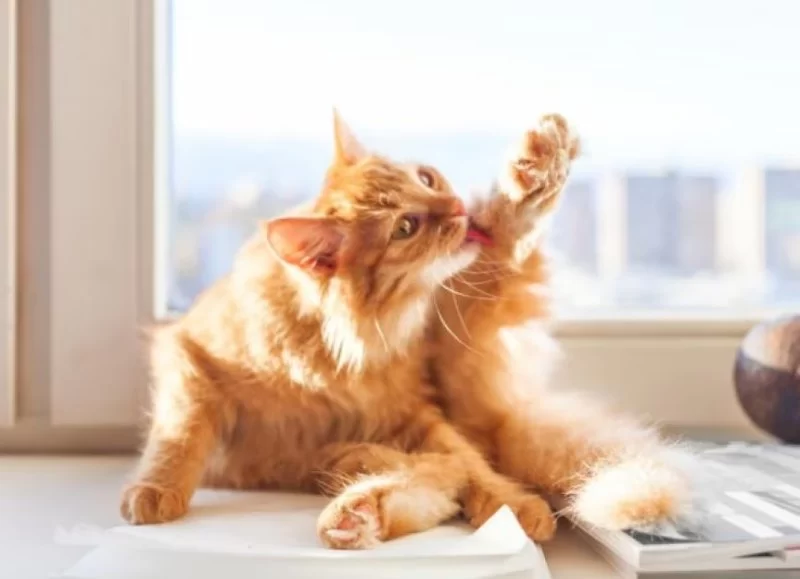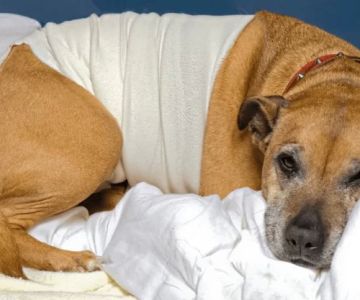Why is My Cat Licking Their Belly and Leg Areas Excessively?
- Understanding Cat Behavior
- Possible Causes for Licking Belly and Legs
- When to Worry About Your Cat’s Licking
- How to Help Your Cat with Excessive Licking
- Consulting a Veterinarian
If you’ve noticed your cat licking their belly and leg areas excessively, you might be wondering if this is normal behavior. Cats are known for grooming, but when licking becomes frequent or intense, it may indicate an underlying issue. In this article, we’ll explore the potential causes of excessive licking in cats and what you can do to help your feline friend feel more comfortable.
1. Understanding Cat Behavior
Cats are natural groomers, and it’s normal for them to lick their body parts, including their belly and legs, as part of their daily hygiene routine. Licking helps cats maintain clean fur and skin and allows them to regulate their scent. However, excessive licking is not always linked to grooming. It can sometimes be a sign of a health issue, stress, or other behavioral concerns.
1.1 Grooming vs. Excessive Licking
While it’s normal for cats to groom themselves, excessive licking—especially when it’s focused on specific areas like the belly and legs—can be concerning. If your cat is licking for long periods or seems to be licking obsessively, it may be worth investigating further. Cats usually groom in moderation, so any signs of compulsive licking should be observed closely.
2. Possible Causes for Licking Belly and Legs
Excessive licking of the belly and legs can be due to a variety of causes, from allergies to stress. Let’s take a look at some of the most common reasons:
2.1 Allergies
Just like humans, cats can suffer from allergies, and this can lead to itching, irritation, and excessive licking. Your cat may be licking their belly and legs to alleviate discomfort caused by allergens. Common allergens include pollen, dust mites, certain foods, and even flea bites. If you notice any red, inflamed, or scaly patches on your cat's skin, it could be a sign of an allergy.
2.2 Flea Infestation
Fleas are a common cause of excessive licking in cats, especially in areas like the belly and legs. Flea bites cause itching, and cats often lick or bite at the affected area to try to relieve the irritation. If you suspect your cat has fleas, check for tiny black specks in their fur (which may be flea dirt) and consult a veterinarian for treatment.
2.3 Dry Skin or Dermatitis
Dry skin or dermatitis (skin inflammation) can cause itching, prompting your cat to lick excessively. Environmental factors, such as low humidity or cold weather, can dry out your cat’s skin. Dermatitis, which may be caused by allergies, infections, or parasites, can also make your cat lick their belly and legs more than usual. Look for signs of redness, scabbing, or hair loss on your cat’s skin to help determine if this is the issue.
2.4 Pain or Discomfort
Sometimes, excessive licking may be your cat’s way of coping with pain or discomfort. If they’re experiencing joint pain or abdominal discomfort, they may focus on licking their belly or legs as a way to self-soothe. Cats often hide their pain, so if your cat is licking one area excessively, it could be a sign of an underlying health issue that needs attention.
2.5 Stress and Anxiety
Cats, like humans, can experience stress and anxiety. Changes in their environment, such as moving to a new home, the arrival of a new pet, or changes in their daily routine, can lead to excessive licking as a coping mechanism. If your cat has recently experienced any stressful situations, this could be contributing to their behavior. Excessive licking in response to stress is often a sign that your cat is trying to comfort themselves.
2.6 Gastrointestinal Issues
Gastrointestinal problems, such as nausea, upset stomach, or even parasites, can cause your cat to lick their lips, paws, or belly. If your cat is experiencing gastrointestinal discomfort, they may lick their belly or legs as a way of soothing their stomach. If your cat is also vomiting or having difficulty eating, gastrointestinal issues could be the cause.
3. When to Worry About Your Cat’s Licking
While occasional licking is normal, excessive licking can sometimes signal a health problem. Here are signs that you should be concerned:
3.1 Skin Damage
Excessive licking can cause your cat to develop sores, redness, or hair loss, especially around the belly and leg areas. If you notice any skin damage or wounds, it's important to consult with a veterinarian to prevent infection and further complications.
3.2 Persistent Licking
If your cat continues to lick their belly and legs for days or weeks, it’s a good idea to seek professional advice. Persistent licking often indicates an underlying health issue that requires treatment. It could be an allergy, skin infection, or even internal health problem.
3.3 Changes in Behavior
If your cat’s licking is accompanied by other changes in behavior, such as lethargy, changes in appetite, or withdrawal from social interaction, it could indicate a more serious condition. A veterinarian should evaluate your cat to rule out any health concerns.
4. How to Help Your Cat with Excessive Licking
Once you’ve identified the potential cause of your cat’s excessive licking, there are several steps you can take to help them feel better:
4.1 Treat Underlying Conditions
If allergies or fleas are causing the licking, treating these underlying conditions will help reduce the behavior. Flea treatments, antihistamines, or dietary changes can help alleviate itching and discomfort. For dry skin, using a humidifier and moisturizing your cat’s skin with a veterinarian-approved product can make a difference.
4.2 Provide a Stress-Free Environment
If your cat is licking due to stress, consider providing a calming environment. This could involve setting up a quiet space for your cat, using pheromone diffusers, or providing interactive toys to reduce anxiety. Consistency in their routine can also help your cat feel more secure.
4.3 Use Distractions
Sometimes, engaging your cat in more play and providing interactive toys can help distract them from excessive licking. Cats may lick when they’re bored, so providing them with new things to explore can keep their mind occupied.
5. Consulting a Veterinarian
If your cat’s excessive licking persists despite your efforts, it’s time to consult a veterinarian. A professional can perform a thorough examination to determine the cause and recommend appropriate treatment. Whether it’s a skin condition, gastrointestinal issue, or stress-related behavior, a veterinarian can help you address the problem and ensure your cat’s well-being. At Hidden Brook Veterinary, our expert team is ready to help diagnose and treat any issues your cat may be experiencing.
Don’t wait—contact us today to schedule a consultation and get the support you need for your furry friend.










